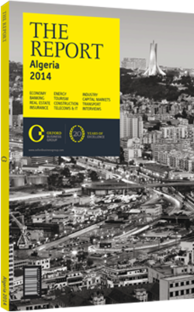OBG talks to Hamoud Tazerouti, CEO, Entreprise Nationale des Véhicules Industriels (SNVI)

Interview: Hamoud Tazerouti
How will the Algerian automotive market evolve over the coming years?
HAMOUD TAZEROUTI: After a historical high of more than 600,000 cars were imported in 2012, the Algerian automotive market has experienced a progressive slowdown in 2013, as well as during the first half of 2014, due to a reprioritisation of household expenditures by consumers – particularly towards housing, which has seen a rise in costs. However, while the domestic market has traditionally been exclusively supplied by imports, 2014 will see the release of the first car made in Algeria. The domestically produced unit will be a Renault model manufactured by a Franco-Algerian company in which we are partners, known as Renault Algérie Production.
This comes as a result of several years of efforts by the government and the industrial sector to develop a domestic automotive segment, in a bid to meet the growing local demand for cars and reduce import bills. However, to fully meet national demand it is necessary for local producers to offer a variety of vehicles. Investments have to be made to increase the domestic production capacity, bring the infrastructure up to par, upgrade industrial tools and gain greater market share. As for vehicle demand, the resumption of the consumption credit should serve as a catalyst of growth for the local production of cars.
What measures can help boost local content?
TAZEROUTI: Improving quality, boosting competitiveness and creating a network of subcontractors are among the key priorities for the domestic automotive industry in Algeria. The main goal is to reach a local content integration rate of around 30% over the next five years. However, doing so can only be attained through the establishment of large-scale automotive clusters that gather a number of small to medium-sized industries and enterprises around bigger corporations.
In order to achieve a solid industrial base locally, we must bring subcontractors up to par so they can attain the level of quality required by international standards. To do so, subcontractors need to ensure they invest in production capacity and human resources.
There is scope for expanding activity throughout the entire supply chain, including the production of mechanical parts and engine components, as well as finished inputs such as axles and chassis. Fuel and air tanks are being made through our joint venture (JV) with Mercedes-Benz at an industrial vehicles production plant in Rouiba, as well as blank casting and forging materials for our engine production JV with Mercedes-Benz, Deutz and MTU. The National Company of Industrial Vehicles and two Austrian partners, EMPL and PALFINGER, have also formed a JV for industrial refinishing to equip all Mercedes-Benz vehicles manufactured at the production plant in Rouiba. We are also prioritising the development of many other related industries.
What can be done to ensure a qualified workforce for the local car industry?
TAZEROUTI: The authorities have encouraged partnerships with foreign companies in key sectors, in a bid to promote local integration and improve overall standards for quality control and management via technology and knowledge transfer. Unfortunately, companies in Algeria are still falling behind when it comes to technical training and management.
Consequently, this is a concern for the whole industry and greater attention must be paid to human resources through the creation of in-house training programmes, for example. The Ministry of Vocational Training has also established a number of new training centres of excellence, which will help foster greater talent for a variety of modern industries, including the automotive sector. We are currently collaborating with the ministry on one such centre for the automotive industry, which will provide training programmes for a wide range of vocations in the sector, with a special focus on mechanical jobs that will allow for young graduates and new hires to be adequately prepared and qualified to meet international production standards.
You have reached the limit of premium articles you can view for free.
Choose from the options below to purchase print or digital editions of our Reports. You can also purchase a website subscription giving you unlimited access to all of our Reports online for 12 months.
If you have already purchased this Report or have a website subscription, please login to continue.

